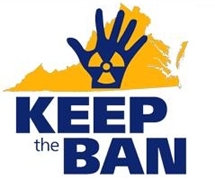Since 2008, Orange County has had a subdivision ordinance that calls for time-phased divisions of land—limiting the number of divisions allowed on a property over a specific period of time. This aspect of the ordinance allows the County to regulate the speed of development in the rural area.
Maps & Resources
Landscaping to Make a Difference
In the Eastern U.S., the crop that takes up the largest acreage isn’t corn, hay, or soybeans—it’s mowed lawns.
Looking Beyond Property Lines to Restore the Thumb Run Watershed
PEC’s Sustainable Habitat Program Manager, James Barnes, often works with landowners in the Piedmont on a one-on-one basis—helping them find ways (and funding) to improve their properties to restore wildlife habitat and water quality. This conservation work is important, and Barnes has worked with many excited landowners. He’s realized, however, that to make a lasting difference in habitat resoration in the Piedmont, landowners will need to start looking past their property lines.
Culpeper Rebuilt
Residents across the Commonwealth were shocked August 23, 2011 when a 5.8 magnitude earthquake, centered in Louisa County, shook the east coast. Downtown Culpeper was one of the hardest hit communities—left with numerous damaged historic buildings. Some of these buildings had to be immediately condemned due to their instability, and the County’s total damages were initially estimated be over $6.5 million.
On the Ground
PEC has been hard at work in many areas these last few months. Read a brief story from each of our 9 counties.
Coal-By-Wire Transmission Line: DEFEATED
For six years, the Potomac Appalachian Transmission Highline (PATH)—a massive, unnecessary 765-kV transmission line— has threatened Virginia. The line was to start in southwest West Virginia, travel northeast through previously undisturbed land, eventually cross through Virginia’s northern Piedmont, and wind up near Frederick, Maryland. PEC and our allies have been fighting this wasteful project for years, and we have some good news: The PATH transmission line project is officially dead. On August 24th, the Board of PJM, our regional grid operators, voted to cancel the project.

Gov. McDonnell’s Uranium Mining Group: Putting the Cart Before the Horse
In 2007, Virginia Uranium, LLC, (VUI) began lobbying hard for the General Assembly’s standing moratorium on uranium mining and milling to be lifted. The corporation has big plans to start a mining and milling operation in Pittsylvania County, and PEC and our allies have fought them every step of the way. There is simply too much at stake. Uranium mining and milling in Virginia would be an extremely dangerous experiment. In the United States, uranium has only been mined in arid regions— where low rainfall makes it more feasible to contain the radioactive and toxic mining waste. Virginia is anything but arid.
Charlottesville Western Bypass: Not just a local issue
In June 2011, the Albemarle County Board of Supervisors shocked constituents by holding an unpublicized, late-night vote to resurrect the Route 29 Western Bypass, northwest of Charlottesville. Since then, VDOT—under pressure from political interests in Lynchburg and the McDonnell administration—has put the Bypass on the construction fast-track. While communities north of Charlottesville may think this bypass is only a local issue, there are compelling reasons for Virginians everywhere to pay attention—and it’s not just the quarterbillion dollar price-tag. Big picture: this bypass is part of VDOT’s vision to transform Rt. 29 into a Central Virginia Interstate; acting as an alternative to I-81 and I-95. This is not only a bad idea, it’s not feasible without a massive right-of-way acquisition and billions of dollars in funding.
Changing Perspectives: My time as a PEC Fellow
PEC’s Fellowship Program, which just finished its sixth year, gives college and graduate students a comprehensive look at the work PEC does in this region—with the hope that the participants will take what they learn in the program into their future careers and communities.
Farm Wineries in the Piedmont: Finding the right balance
Over the past year, there has been an increasingly heated debate over whether and how local governments should regulate the entertainment activities of farm wineries in Virginia. This is a multifaceted issue with multiple interests involved, and what works for one county doesn’t necessarily work for another. As more farm wineries make their home in the Piedmont, localities will have to decide what future they envision for their rural areas and their communities—and how farm wineries fit into that picture.
